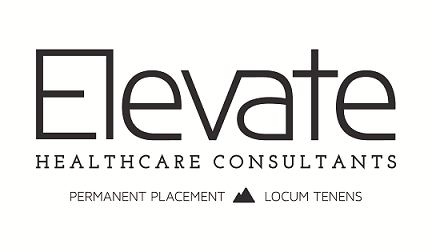Not all people can successfully run a business. But, if you’re considering starting your own medical practice, then you might find this article useful.
In the past, physicians mostly worked for themselves, operating a small business while treating their patients. They thrived in the industry and were able to balance the job required of a medical professional while managing their own private practice. However, it wasn’t until a couple of years ago that there were more employed physicians than independent practitioners.
Employed Position vs. Private Practice
The number of independent practices has continued to drop in recent years. Healthcare experts have been predicting their end for years now. Instead of owning a private practice, some physicians are now willingly choosing to become employees.
Employment is the more preferred option nowadays
Some physicians view administrative burdens and overhead costs of an independent practice very unappealing. This is especially true among millennial physicians who prefer a career as an employee, then the responsibilities that come with being the boss.
Another reason why a lot of new doctors stay employed rather than owning a practice is due to the difficulty of establishing a business these days, especially during this pandemic. Insurance companies make it hard for them to start a practice as well, due to them holding huge invisible barriers for doctors. Most days doctors spend hours on the phone with insurance companies, especially when credentialing, and ultimately putting them off from taking that leap.
While the struggle of putting up and maintaining a private practice is one of the main reasons why many physicians reject the idea of being an independent doctor, others opt to remain an employee for a different purpose. For them, practicing medicine is just a part of their career. Working for a health institution allows them to follow another career path like seeing patients and teaching at a medical school, for example. It means that they are not tied to their own business and are open to doing other things they may like to do later on.
It is not yet the end for independent practices
Although it is believed that private practices are on the brink of extinction, others think that they will make a comeback in the near future. Some physicians now choose to operate under the direct-pay model, which avoids the trouble and stress of working with insurance companies. Operating a direct-pay practice allows doctors to have a closer doctor-patient relationship, enjoy better price transparency, and lower overhead since there’s no interference with a third-party payer.
Private practices are also an attractive option for those who want to enjoy professional flexibility. Whether you are looking for a single-physician practice or a large physician-owned group with multi-specialties, independent practices are versatile. Some practices operate in large cities and even in remote towns now. This means that there are tons of opportunities for those who want to take the step into having their own business.
Even though the landscape of physician practice is changing, there are still many opportunities for practitioners who want to retain their independence. As a matter of fact, being independent may be a plus when it comes to implementing changes and making decisions.
What it Takes to Own a Private Practice
Of course, there are pros and cons to each career pathway, so it is not easy to quickly identify which one is the better choice. But, if you are thinking of combining the business aspect of being an independent practitioner with the art of medicine, then read on to know if owning a private practice is ideal for you.
You enjoy building and maintaining a strong network
To be successful in your private medical practice, you shouldn’t just only focus on the current industry state. You must also consider the future trends of delivering healthcare both locally and internationally. It’s also vital to navigate relationships with other health care institutions, including medical insurers, hospitals, and medical practices in your local area.
Patient engagement is a crucial part of your role in providing quality care as an independent physician. This means more than just having conversations with patients during a visit. It also involves following up to make sure that patients complete their care plan, checking on in their medical plan’s progress, and communicating test results.
This additionally means improving care coordination and patient engagement for the patients’ overall welfare and health. When patients and everyone in the community trusts you, you will be able to create links to valuable resources that could benefit your practice in the long run.
You want to be the boss
Part of being an independent practitioner is the privilege to manage employees and make important decisions for the business. You can practice medicine on your own terms, and the choices you make for the management go without question.
Perhaps, the idea of autonomy is appealing to you, but it can also be a double-edged sword. While it is great to have the complete freedom to make essential decisions for your own practice, you also have the burden of making crucial choices for the employees working under you.
Therefore, finding the right people to join your team is vital in being successful. Physicians who opt for private practice succeed when they have exemplary administrative staff who support the vision of their practice. However, keep in mind that while your staff can give valuable council, it is still up to you to develop the practice’ culture and guide its trajectory.
You are open to discovery
Like any other business, medical practices requires passion, commitment, a desire to improve continually, and an open mind to change and discovery. With all that being said, owning your own practice allows you to be in charge of the overall health and well-being of your patients, so a well-designed medical model can help improve access to high-quality care in your community.
Take advantage of the opportunity to combine your professional medical skills with other non-medical talents like social media marketing or interior design. Create an opportunity for your staff to also show their creative side.
Conclusion
If you believe that you possess the above-mentioned qualities, then you probably have what it takes to be a successful independent practitioner. However, it’s important to do some background research and understanding your professional personality. That way, you can better decide on what would be the best type of practice that would suit you.
 (002).png)
|

|

|

|
© 2024 LocumTenens.org, Inc. All Rights Reserved.
Privacy